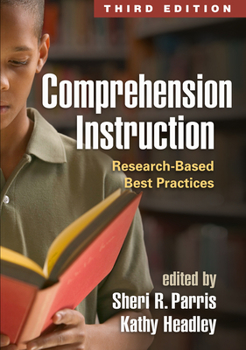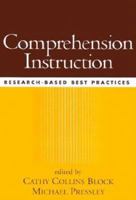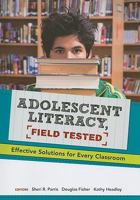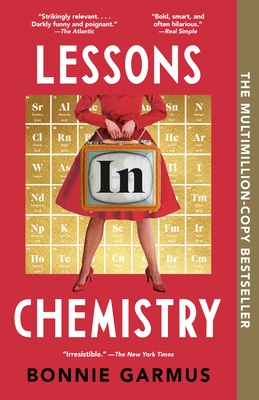Comprehension Instruction: Research-Based Best Practices
Select Format
Select Condition 
Book Overview
All key issues of research and practice in comprehension instruction are addressed in this highly regarded professional resource and course text. Leading scholars examine the processes that enable students to make meaning from what they read--and how this knowledge can be applied to improve teaching at all grade levels. Best practices for meeting the needs of diverse elementary and secondary students are identified. Essential topics include strategies for comprehending different types of texts, the impact of the Common Core State Standards (CCSS), cutting-edge assessment approaches, and the growing importance of digital genres and multimodal literacies. User-friendly features include end-of-chapter discussion questions. New to This Edition
*Incorporates the latest research and instructional practices.
*Chapters on the CCSS, critical theory, culturally responsive instruction, and response to intervention.
*Chapters on teaching fiction and informational texts in the secondary grades.
*Expanded coverage of multimodal literacy learning.
*Timely topics such as text complexity, close reading, digital literacies, and neuroscience are discussed in multiple chapters.
*Incorporates the latest research and instructional practices.
*Chapters on the CCSS, critical theory, culturally responsive instruction, and response to intervention.
*Chapters on teaching fiction and informational texts in the secondary grades.
*Expanded coverage of multimodal literacy learning.
*Timely topics such as text complexity, close reading, digital literacies, and neuroscience are discussed in multiple chapters.
Format:Hardcover
Language:English
ISBN:1462520790
ISBN13:9781462520794
Release Date:July 2015
Publisher:Guilford Publications
Length:418 Pages
Weight:2.15 lbs.
Dimensions:1.1" x 7.2" x 10.1"
More by Sheri R. Parris
Customer Reviews
5 customer ratings | 5 reviews
There are currently no reviews. Be the first to review this work.






















